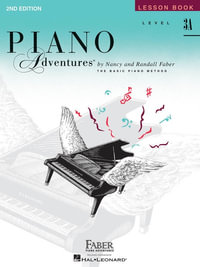Now available in paperback, this is perhaps the first comprehensive account of the nature and significance of music from the perspective of modern philosophy, and the only treatment of the subject which is properly illustrated with music examples. The book starts from the metaphysics of sound, distinguishes sound from tone, analyses rhythm, melody, and harmony, and develops a novel account of music, as the intentional object of an imaginative perception. The
argument explores the various dimensions of musical organization and musical meaning, and shows exactly how and why music is an expressive medium. The Aesthetics of Music explains and
criticizes many fashionable theories in the philosophy and theory of music, and mounts a case for the moral significance of music, its place in our culture, and the need for taste and discrimination in both performer and listener. The various schools of musical analysis are subjected to a critical examination, and recent criticism of tonality, as the foundation of musical order, are rehearsed and rejected. Scruton defends the objectivity of aesthetic values, lays down principles of criticism,
and ends with an energetic critique of modern popular music.
Industry Reviews
`It is a great merit of Scruton's book that it does not shy away from issues of the value, including moral value, of different sorts of music.'
The Philosophical Review, vol. 109, no.4
`The Aesthetics of Music constitutes also an advanced primer in the appreciation of music, one worthy to set alongside those of distinguished predecessors such as Copland, Bernstein, and Tovey. Scruton illustrates almost every point of importance with a well-chosen example, which examples are reproduced to a very high standard. It is difficult to overestimate how much more accessible and compelling the observations offered are when backed up at every
juncture by musical specifics.'
The Philosophical Review, vol. 109, no.4
`the most valuable work to date on the subject of its title, one that addresses that subject in its full range and complexity, and one that is full of insight and instruction, both musical and philosophical, at every turn. ... Scruton's musical culture, as here displayed, is simply astounding.'
The Philosophical Review, vol. 109, no.4
`what Scruton is doing is offering devotees of atonality the chance to acknowledge that the phenomenon was a passing, perhaps inevitable but nevertheless temporary phase'
Arnold Whittall, The Musical Times, Winter 99
`Scruton is certainly passionate about his subject and the passion informs the eloquence of his writing ... He keeps jargon to a minimum and his finely tuned ear guarantees a flowing prose style ... The Aesthetics of Music is a stimulating and provocative book.'
Piers Spencer, Music Education
`This is a book centrally concerned with the nature of our musical responses, with exactly when and how 'sound' is transformed into 'tone.' ... Scruton's music examples are impressive not only for the number and range of them ... but also for the detailed uses he makes of them - especially in those musically engaged chapters in the middle of the book on expression, langauge, tonality, form and analysis.'
Anthony Pryer, Journal of the Royal Musical Association, 124 (1999)
`For those who, like me, have realist inclinations, Scruton's book poses a systematic challenge, especially since some parts of the package seem very attractive indeed ... It deserves to be at the center of discussion in the aesthetics of music for a long time to come.'
Gary Iseminger, The Journal of Aesthetics and Art Criticism, Summer 1999
`It refreshing to find a work that so willingly tackles the really hard questions about music's significance and value... a book full of nutritious thoughts and insights. It is profoundly erudite, well-written and handsomely produced, and one of its major pleasures is the abundance of musical examples: Scruton's knowledge of music and music history is quite exceptional. It is extremely agreeable to read, and will certainly be an essential work for anyone
interested in the topic.'
M.W. Rowe, British Journal of Aesthetics
`the diligent reader is rewarded with a powerful display of Scruton's philosophical insights. It is philosophy at its best.'
Zbigniew Granat, Notes, December 1999
`extraordinarily rich and impressive'
Malcolm Budd, British Journal of Aesthetics
























